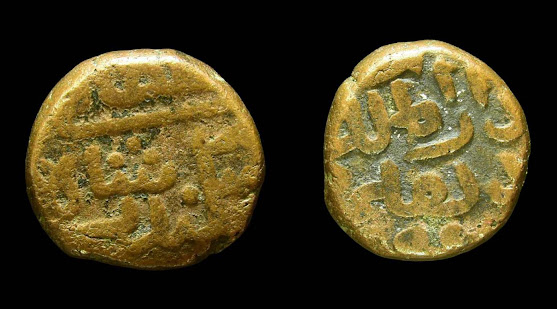Featured
- Get link
- X
- Other Apps
Nasir al-Din Khusru (AH 720; April 15, AD 1320 to September 5, 1320 AD)
Nasir-ud-Din Khusrau, killed Qutb ud din Mubarak Shah, ascended to the throne of Dehli Sultanate for a very short time. After killing off Mubarak Shah in an midnight coup, he killed off all remaining Khaljis. That night, he made sure all nobles accept his accession to the throne as Sultan Nasiruddin.
He had a very interesting past. He and his uterine brother Husamuddin (or Hisamuddin) were born into a Hindu Kshatriya community called the Baradu. They were captured during the conquest of Malwa. They were brought up as slaves of Alluddin Khalji and later became the concubine of Mubarak Shah. Mubarak gave Khusrau Khan the command of the army of the deceased Malik Kafur, and made him a wizarat. Khusrau faught in the war with the Kakatiya rulers. Khusrau Khan also convinced Mubarak Shah to allow him to raise an army of Baradu Hindus by arguing that all other nobles (maliks) had their own groups of followers.
However when he became sultan, the he tried to make his rule secure by various devices including a liberal distribution of gifts, on the line adopted by Ala-ud-din when he had usurped the throne. His treatment of his patron and his family, however, had alienated public opinion. Furthermore, the behavior of Khusrau's companions, many of whom were Hindus, convinced leading Muslims that there was a possibility of the revival of Hindu supremacy or at least displacement of Islam from the position it occupied. Ghazi Malik, the governor of Dipalpur, instigated the lower officers against the new king and started a rebellion. Ghazi Malik marched and reached near Delhi. Ghazi Malik's army defeated Khusrau Khan's forces at the Battle of Saraswati and the Battle of Lahrawat. Khusrau Khan fled from the battlefield, but was captured and killed a few days later. Ghazi Malik declared himself the King of Delhi. Now, he was called Ghiyas-ud-Din Tughluq.
Thus ended the bloodthirsty Khalji dynasty.
Copper Paika,
Obv: al-sultan al a'zam,
Rev: nasir al-dunya wa' l din,
Wt : 4.00 g
Dia : 15.8 mm,
Ref : D0297
- Get link
- X
- Other Apps
Popular Posts
Ala ud-din Sikandar Shah Tughlaq (22 January − 8 March 1394)
- Get link
- X
- Other Apps
Mu'izz ud-Din Muhammad bin Sam (AH 589-602 / CE 1193-1206)
- Get link
- X
- Other Apps





Comments
Post a Comment